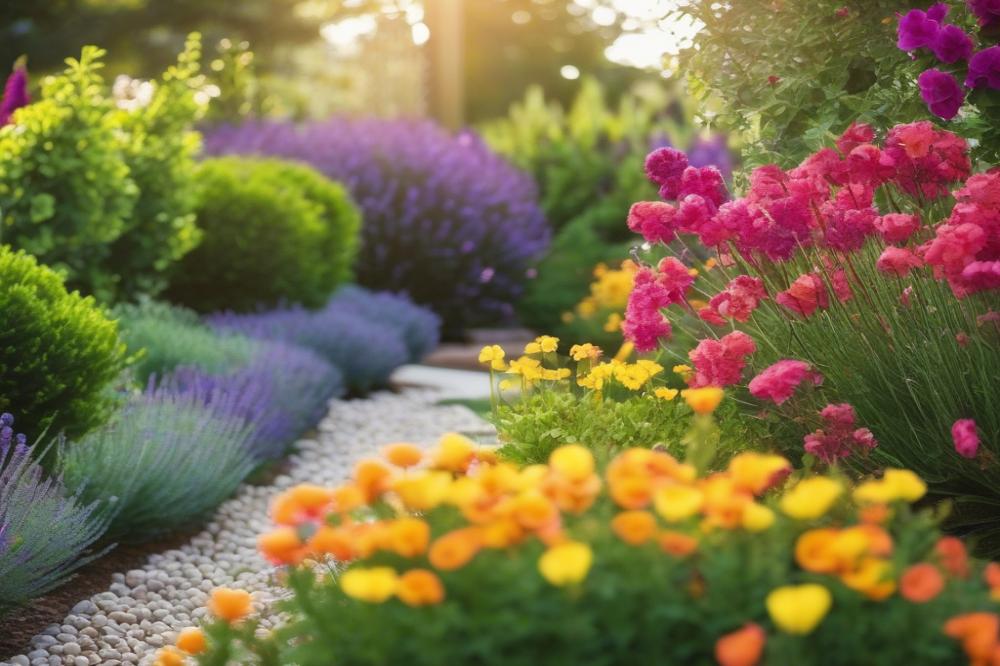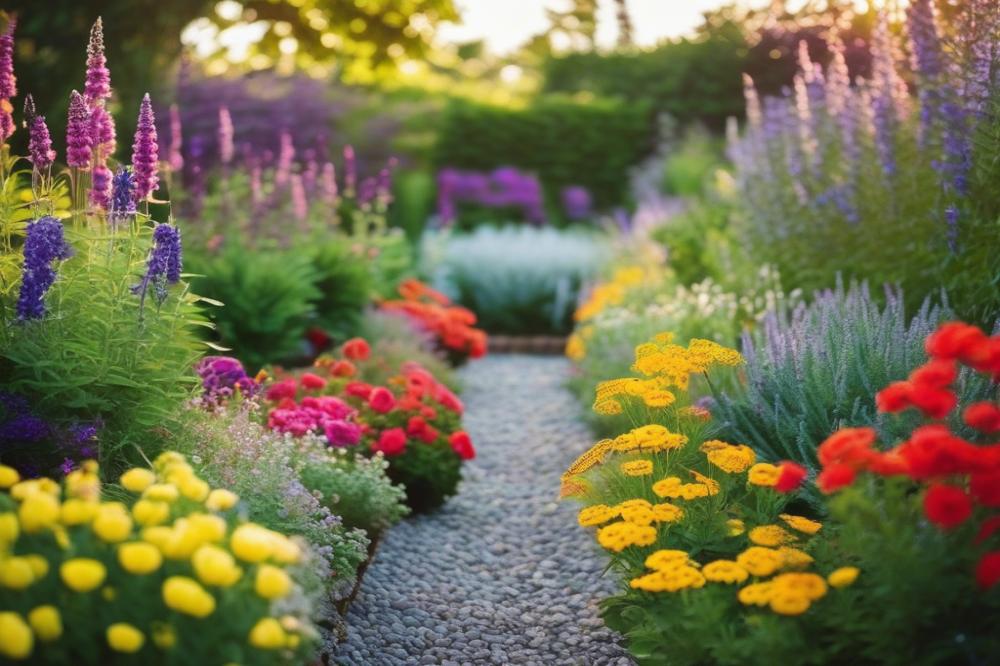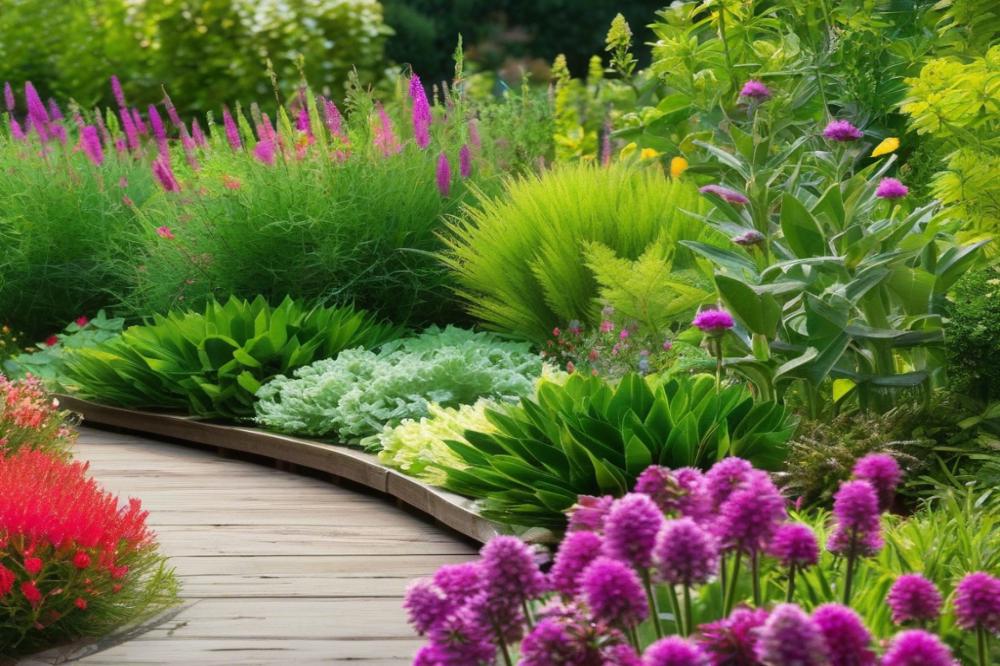Introduction
Maintaining a healthy garden can be a rewarding experience. However, managing pests can often turn this joy into a struggle. Many gardeners turn to chemical insecticides to protect their plants. Yet, there are growing concerns about the impact of these substances on the environment and human health. This shift has led to a rise in interest surrounding natural pest control methods.
Eco-friendly gardening practices promote a sustainable approach to maintaining gardens. By using organic solutions, gardeners can minimize harm to beneficial insects and the surrounding ecosystem. Adopting these methods helps to create a more balanced environment. In particular, there is much to explore with aromatic repellents. They not only protect plants but can also enhance the garden’s fragrance.
Essential Oils have garnered attention as effective pest deterrents. Numerous studies suggest that these concentrated plant extracts can repel a variety of garden pests. Blending different oils can yield effective insect repellents suitable for even the most stubborn invaders. DIY solutions using these oils allow gardeners to customize their pest control strategies, all while remaining eco-friendly.
By exploring these natural alternatives, gardeners can find peace of mind. They can protect their plants without harming the environment. Embracing essential oil blends is just one way to enhance garden maintenance. With a little research and creativity, anyone can transform their gardening practices.
Understanding Essential Oils


Essential oils are concentrated plant extracts known for their aromatic properties and potential benefits. These oils are obtained through various methods such as steam distillation, cold pressing, and solvent extraction. Each method affects the composition and purity of the oil. For example, steam distillation is commonly used for extracting oils from leaves and flowers, while cold pressing is typically used for citrus peels.
Popular Essential Oils for Pest Control
Many gardeners turn to specific oils for natural pest control. Some of the most effective options include peppermint, neem, eucalyptus, and lavender. Peppermint oil acts as a potent insect repellent, making it less attractive for ants and spiders. Neem oil contains compounds that disrupt the life cycle of pests, reducing their numbers. Eucalyptus oil emits a strong aroma that many insects find unpleasant, while lavender is adored for its fragrance by humans but detested by moths and other bugs.
Safety and Usage Considerations in Gardening
When using aromatic repellents, safety is crucial. Always remember to dilute essential oils before applying them to avoid harming plants or beneficial insects. Creating DIY solutions like oil sprays can be effective. Mix a few drops of your chosen oil with water and a mild soap, then spray it directly on the affected areas. It’s also wise to test any solution on a small plant section first. Additionally, consider the timing of application, as some oils can break down quickly in sunlight. Eco-friendly gardening practices include using these natural pest deterrents without harming the environment.
Organic gardening enthusiasts often embrace essential oil blends to repel various pests while keeping their gardens attractive. Using these oils supports garden maintenance without resorting to synthetic chemicals. By being mindful of how you use essential oils, you can create a healthy and thriving garden while reducing unwanted insect visitors.
How Essential Oils Work as Insect Repellents


The science behind aromatic repellents is fascinating. Many plants produce oils that naturally repel insects. These oils convey strong scents that disturb pests, deterring them from feeding on your plants. When you apply these oils, you create an environment less inviting to unwanted visitors in your garden.
Mechanisms of Action Against Common Garden Pests
Aromatic compounds in these substances serve different purposes. For instance, compounds found in peppermint oil can confuse insects by masking the scents they rely on to locate food. Similarly, citronella oil disrupts the sensory receptors of mosquitoes, making them less likely to venture around. This holds true for many other common pests that gardeners face, such as aphids and beetles. Each type of oil targets specific insects, allowing for effective pest management through strategic applications.
Benefits Over Synthetic Pesticides
Choosing these natural pest control options comes with several advantages. First, they are safer for beneficial insects like bees and ladybugs. Unlike synthetic pesticides, aromatic repellents do not harm the ecosystem as much. Additionally, organic gardening enthusiasts appreciate these solutions because they are often biodegradable and break down naturally. Environmental impacts also decrease, which is a significant factor for those practicing eco-friendly gardening.
DIY solutions incorporating essential oil blends offer gardeners the chance to be creative. Making your insect repellent not only saves money, but it also allows for customization. Different mixtures can be tailored to target specific pests while promoting overall plant health. Thus, the integration of natural aromatic repellents becomes a smart choice for effective garden maintenance.
Effective Essential Oil Blends for Garden Pest Control


Top essential oil blends for various pests
A variety of essential oil blends can help keep pests away from your garden. For aphids, consider mixing a few drops of peppermint and spearmint oil. These oils have a strong scent that many insects find unappealing. If mosquitoes are the problem, try a blend of citronella and eucalyptus oil. The refreshing smell can keep them at bay. For more persistent pests like spiders, peppermint mixed with tea tree oil works effectively as an insect repellent. The combination of these oils creates a barrier that deters not only spiders but also encourages other beneficial insects to thrive.
DIY solutions for creating personalized blends
Making your own blends can be both fun and empowering. Start with a base oil, like coconut or almond oil, and add about ten drops of your chosen essential oils. Mixing lavender and rosemary can create a soothing scent while still repelling unwanted insects. Always consider the plants you have; some might prefer different scents. Creating unique blends tailored to your specific gardening scenario can make pest deterrents more effective. Experimenting can reveal what works best for you. Remember to label each blend to keep track of your experiments during garden maintenance.
Application methods for optimal results
Applying these aromatic repellents is straightforward. You can use a spray bottle filled with your essential oil blend and water. A good ratio is about 10 to 15 drops of oil for each cup of water. Shake it well before each use to mix the ingredients. Spray the leaves directly in the morning or late afternoon for the best absorption. Focusing on the underside of leaves can help; many pests like to hide there. Additionally, soaking cotton balls in your blend and placing them around the garden is effective. This method keeps a strong scent in the area and wards off unwanted visitors. Always try to apply these solutions regularly, as the effects can diminish over time.
Incorporating Essential Oils into Garden Maintenance


Regularly using aromatic repellents can greatly improve your organic gardening efforts. Understanding how to integrate these natural pest control methods into your routine is key. Start by selecting suitable insect repellent oils, like peppermint or lavender. These oils can deter many common pests that might harm your plants.
Timing matters when applying these oils. Early morning or late afternoon are generally the best times, as temperatures tend to be cooler. Apply the blends after watering your plants. This way, the oils can adhere better to the leaves. Consider reapplying every week or after heavy rains, as the rain can wash away the oils.
Combining pest deterrents can enhance their effectiveness. For instance, mixing different essential oil blends can create a stronger barrier against unwanted invaders. You might try a combination of tea tree oil and eucalyptus for a powerful DIY solution. This not only repels insects but also helps keep your garden eco-friendly.
Along with the oils, other natural methods can help maintain your garden. Introducing beneficial insects, such as ladybugs, will create a balanced environment. Companion planting can also add extra protection against pests. Using these strategies alongside essential oils provides a comprehensive approach to garden maintenance.
Experiment with different combinations to find what works best for your unique garden. Keeping a close eye on pest activity will guide your applications. With dedication, you’ll create a thriving, pest-free garden that flourishes naturally.
Case Studies and Success Stories
Many gardeners have found success in using natural pest control methods, particularly through the use of aromatic repellents. One example comes from a community garden in Oregon, where volunteers discovered that a blend of peppermint and eucalyptus effectively kept away aphids. Gardeners noted a significant decrease in aphid populations after applying this homemade insect repellent regularly. As a result, their vegetable crops thrived without the need for harsh chemicals.
A local farmer shared his experience with basil essential oil. After mixing it with water, he sprayed the solution around his tomato plants. Within weeks, he observed fewer caterpillars munching on the leaves. His tomatoes not only survived but also produced a bountiful harvest, demonstrating the advantages of eco-friendly gardening practices.
Testimonials from enthusiastic gardeners reinforce the benefits of these DIY solutions. A gardener from California mentioned, “Using clove oil has been a game changer for me. I had trouble with ants invading my herbs, but now they stay away.” Her story illustrates how effective tiny shifts can dramatically improve garden maintenance efforts.
Shifts in pest populations can often be seen quickly when using essential oil blends. In another case, a family running a small vegetable plot in New York began using lavender oil as a pest deterrent. The lavender not only repelled pesky mosquitoes but also attracted beneficial pollinators. They saw healthier plants and a more vibrant garden ecosystem within one season.
Many eco-conscious gardeners have embraced these approaches, seeing positive changes in their crops. The use of organic gardening techniques paired with aromatic solutions has fostered a healthier relationship with nature. One such gardener commented, “I now feel more connected to my garden. Natural pest control feels right, and it works!” This sentiment reflects a growing trend where individuals seek out sustainable and effective methods for maintaining their gardens.
Final Thoughts on Eco-Friendly Pest Control
Using essential oils for pest management in your garden offers many advantages. These natural substances provide a safer alternative to chemical pesticides. They can effectively repel unwanted insects, all while being gentle on the environment. Many gardeners find satisfaction in minimizing harmful impacts on beneficial creatures. This approach fosters a healthier ecosystem in your outdoor spaces.
Adopting eco-friendly gardening methods may seem daunting at first. However, the benefits often outweigh the challenges. By choosing natural pest control, you not only protect your plants but also embrace sustainable practices. Relying on plant-based solutions leads to a more harmonious relationship with nature. It encourages a sense of responsibility towards our surroundings.
As you contemplate your gardening choices, consider the ripple effect of your actions. Every small step towards sustainability contributes to a larger movement. It can inspire others to follow suit and change their gardening habits for the better. Ultimately, making informed decisions can impact your health and the world around you. Finding joy in gardening while protecting it is the way forward.



